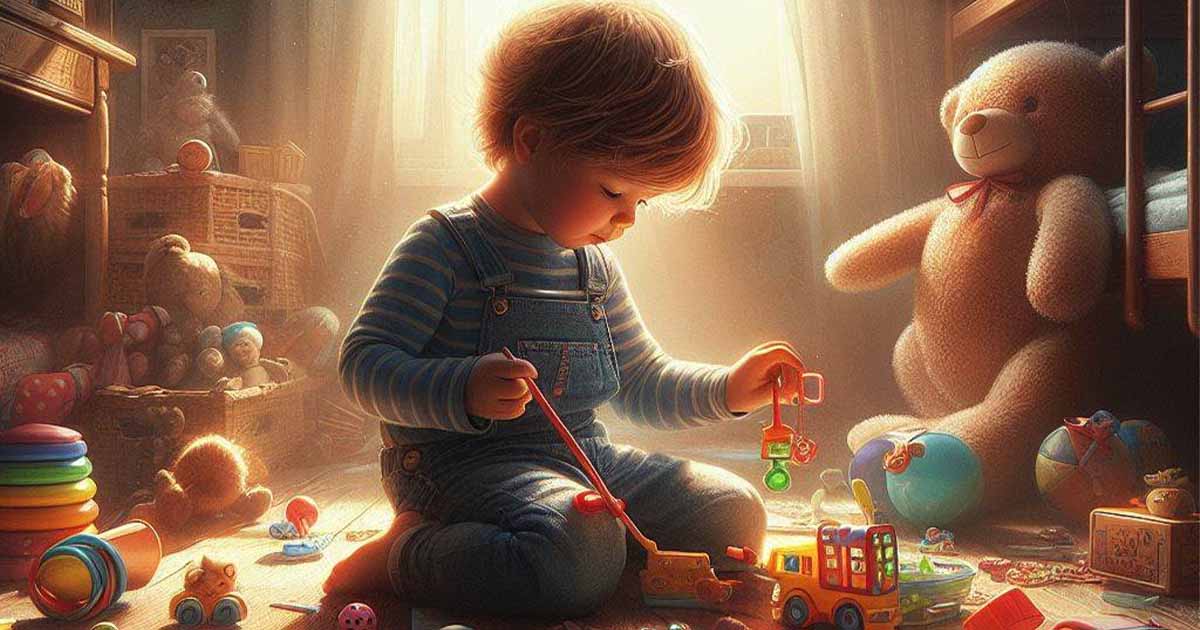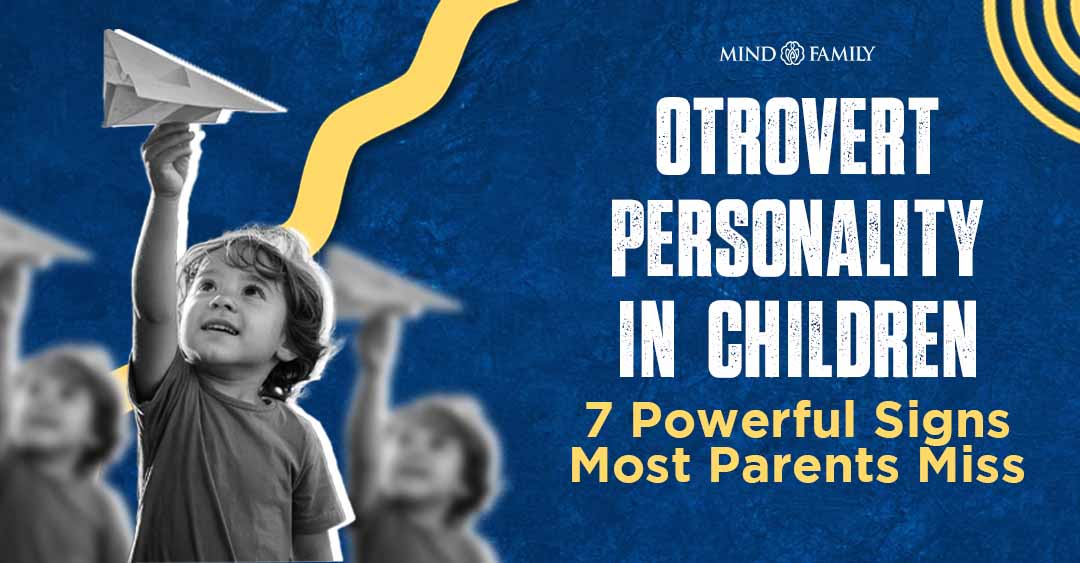While raising children we often overlook the importance of play in early childhood development. We as parents do not correlate play with learning. But that notion is changing rapidly.
According to research published by the American Academy of Pediatrics, “Playing is learning.” Children absorb knowledge and skills through playtime adventures. Despite its light-hearted appearance, play helps kids grow in many ways – mentally, socially, emotionally, and physically.
In this article, we explore the deep importance of play during a child’s early years. By examining ten essential advantages, we reveal the various ways play influences a child’s thinking, social skills, emotions, and physical abilities.
Types Of Play In Early Childhood
In early childhood, children play in different ways as they grow up.
Here are the types of play in early childhood development:
1. Unoccupied Play:
This is when babies, from birth to about three months, move around randomly without a clear purpose. It’s like they’re exploring their bodies and the world around them.
2. Solitary Play:
From three to 18 months, babies play on their own. They’re busy grabbing and exploring objects without paying much attention to other children nearby.
3. Onlooker Play:
Toddlers watch other children play without joining in. They’re learning from watching and listening to others.
4. Parallel Play:
Around 18 months to two years old, children play alongside others without interacting much. They might play with similar toys but independently.
5. Associative Play:
At around three to four years old, children start socializing more with other kids. They play together without strict rules, sharing toys and ideas.
6. Social Play:
Children around three years old start interacting more with others, learning to share and cooperate. They begin to understand social rules and values.
7. Motor-Physical Play:
When children run, jump, and play physically demanding games like tag, they’re engaging in physical play. It helps them exercise and build strength while learning social skills.
8. Constructive Play:
Children create things using blocks, sand, or drawing materials. They explore objects, discover patterns, and gain confidence in their abilities.
9. Expressive Play:
Children use materials like paints, clay, or instruments to express their feelings and creativity. Parents can join in to encourage expression.
10. Fantasy Play:
Children pretend to be someone else or imagine different situations. It helps them think creatively and learn about the world around them.
These different types of play are like building blocks for your child’s growth and development. As they transition from unoccupied play in infancy to cooperative play in the preschool years, they are acquiring essential skills – from basic motor skills to complex social abilities.
10 Key Benefits of Play in Early Childhood Development
From imaginative play to physical activities, children derive numerous benefits from engaging in various forms of play.
The following are the key benefits of play in early childhood development:
1. Promotes Cognitive Development:
Play stimulates children’s cognitive abilities by encouraging problem-solving, critical thinking, and creativity.
Through imaginative play, such as pretending to be characters or engaging in make-believe scenarios, children develop their imagination and expand their understanding of the world.
Building blocks, puzzles, and other educational toys enhance spatial awareness, mathematical concepts, and logical reasoning skills. By actively engaging their minds during play, children lay the foundation for future academic success.
2. Maximizes Social Skills:
Playtime provides the perfect setting for children to interact with their peers, siblings, and caregivers, which makes their social skills skyrocket. Whether they’re working as a team in a cooperative game or acting out imaginary scenarios, children learn how to communicate effectively.
They also learn how to share resources, negotiate conflicts, and collaborate harmoniously with others. Building empathy and emotional intelligence is key for them to succeed in life’s many relationships and interactions.
3. Facilitates Emotional Regulation:
Play is an innately safe space for children to express and regulate the emotions inside of them. Acting out dramatic plays helps work through feelings while physical activities help release pent-up energy — managing stress, anxiety, or frustration becomes easier too. Exploring different roles and scenarios helps children better understand their own emotions and learn how to cope with difficult situations that arise throughout life.
It complements problem-solving strategies as well as resilience-building during adversity.
4. Encourages Physical Fitness:
Running around like a madman promotes physical fitness in young children — that’s just one of its many benefits! By engaging in physical activities such as running or climbing trees helps develop gross motor skills substantially more than any other method could ever hope for. It also stimulates balance, coordination and strength development all at once!
Outdoor playtime allows children to explore their environment on a sensory level; fostering curiosity and adventure within them.
Physical activity minimizes obesity risk; enhances overall cardiovascular health; improves motor proficiency levels.
5. Fosters Language Development:
Language learning becomes way less boring when it’s learned unintentionally through playtime! With pretend play sessions, storytelling hours or interactive games on hand; children are exposed to a plethora of vocabulary terms every time they turn around!
Through conversations with fellow playmates or adults alike; practicing listening capabilities alongside speaking ones becomes more fun rather than tedious work.
A child’s language fluency depends on playful interactions with their peers and grown-ups.
6. Cultivates Imagination and Creativity:
Imaginative play unleashes children’s creativity and encourages them to explore their imagination. Whether building fantastical worlds with blocks, creating art with paints and clay, or inventing stories and characters, children engage in imaginative play to express themselves and stretch their creative boundaries.
By encouraging open-ended play experiences, caregivers and educators nurture children’s imagination, curiosity, and divergent thinking skills. Through imaginative play, children develop problem-solving abilities and innovative thinking, laying the foundation for future innovation and creativity.
7. Promotes Self-Discovery:
Playing helps kids learn more about themselves, express themselves, and figure out who they are. Whether your child is pretending to be Ironman, a nurse, or their favorite teacher at school, playtime provides kids with the opportunity to test out being different people.
This is important because while they’re playing make-believe, kids are able to imagine and explore what their interests, strengths, and aspirations are. Plus, playtime creates a safe space for children to explore their own individuality.
8. Cognitive Flexibility and Adaptability:
Through games structured or free-play activities children learn flexibility when it comes to learning new things or adapting behaviors to certain situations. They also begin developing skills around problem-solving by experiencing different approaches and solutions during playtime.
Exposure to different types of play will ultimately help build resilience in tough situations that may come up in school or even down the road as adults.
9. Stimulates Curiosity and Exploration:
Playtime allows children’s natural curiosity bloom by exploring the world around them. Whether they are touching toys or observing nature outside it’s always a good thing when children ask questions about everything!
When kids do experiment with things like toys or even sensory activities it develops deeper inquiry skills that gives them a better understanding of how things work in the environment around us too
10. Strengthens Family Bonds and Relationships:
Playtime builds stronger relationships between family members through shared experiences filled with laughter and connection.
Whether you’re just playing Monopoly as a family on game night or building something together on creative projects day at school it doesn’t matter – all that matters is that you’re doing these things together!
Parents also have the ability during playtime conversations to nurture trust, communication, and emotional intimacy which strengthens bond between each other
A Word From Mind Family
As Mind Family, we wholeheartedly advocate for the importance of play in early childhood development. It’s not just about having fun; it’s about giving children the tools they need to thrive in every aspect of their lives.
From boosting cognitive skills to fostering emotional intelligence, play is the foundation upon which children build their futures.
We believe that every child deserves the opportunity to play, explore, and discover the world around them. By supporting play in all its forms, we empower children to become confident, creative, and compassionate individuals who are ready to tackle whatever challenges come their way.
So let’s encourage playtime, both at home and in educational settings, and let’s cherish the laughter, the imagination, and the joy that it brings. Together, we can create a world where every child has the chance to reach their full potential through the power of play.
Frequently Asked Questions (FAQs)
1. What are the different types of play in early childhood?
Different types of play in early childhood include unoccupied play, solitary play, onlooker play, parallel play, associative play, social play, motor-physical play, constructive play, expressive play, and fantasy play.
2. What are the benefits of play in early childhood development?
Benefits of play in early childhood include cognitive development, social skill enhancement, emotional regulation, physical fitness, language development, imagination cultivation, self-discovery, cognitive flexibility, curiosity stimulation, and family bonding.
3. What is the importance of play in early childhood?
Play in early childhood is important for holistic development, fostering cognitive, social, emotional, and physical skills. It promotes learning, creativity, problem-solving, and resilience, laying the foundation for future success and well-being.












Leave a Reply